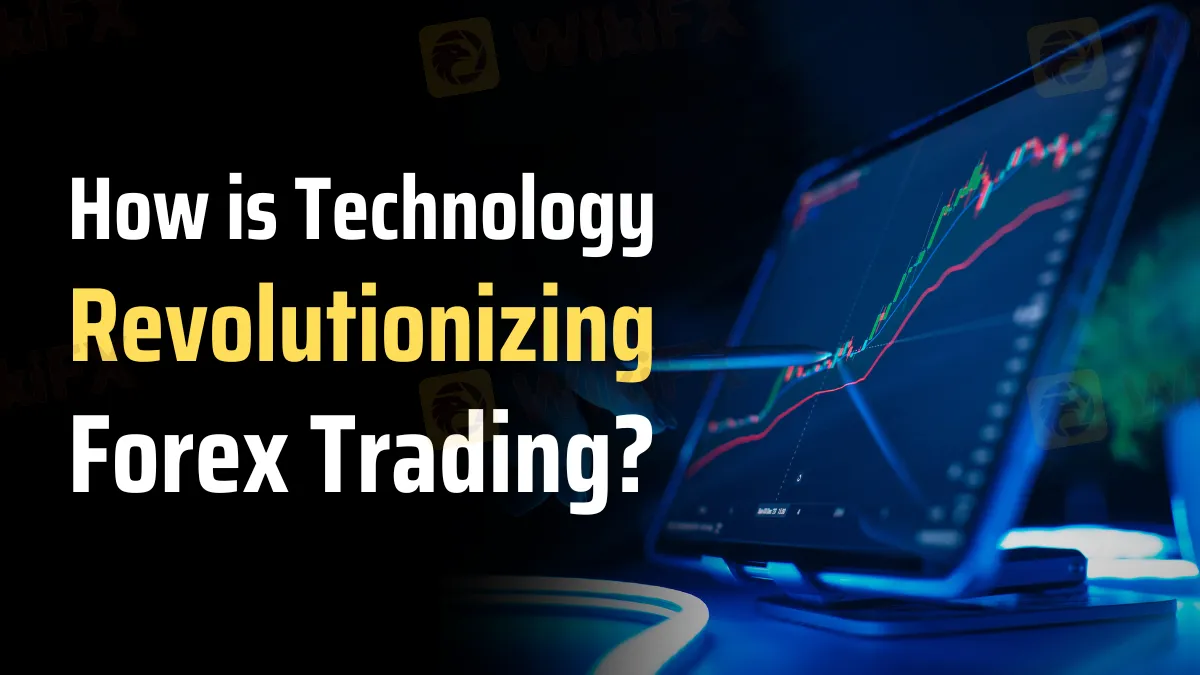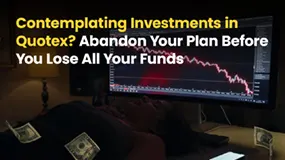简体中文
繁體中文
English
Pусский
日本語
ภาษาไทย
Tiếng Việt
Bahasa Indonesia
Español
हिन्दी
Filippiiniläinen
Français
Deutsch
Português
Türkçe
한국어
العربية
How is Technology Revolutionizing Forex Trading?
Abstract:Discover how technology transforms forex trading through ease of access, competitive landscapes, smaller providers, flexibility, and automation.

The digital era has seen constant technological advancements that affect several industries, including forex trading. The forex market has changed dramatically with technological breakthroughs, increasing accessibility, competitiveness, and efficiency of trading. Five ways that technology is evolving forex trading are examined in this article.
Availability
The simplicity of access to forex trading has been much boosted by the development of technology. By use of websites and social media, forex trading firms today have a strong online presence that makes it easy for both new and experienced traders to interact with them. Websites and social media accounts such as LinkedIn, Facebook, Instagram, and Twitter are essential means of sharing and interacting with information. Through an explanation of its complexities, dangers, and benefits, these platforms educate the general public about forex trading.
The online presences of forex trading firms improve accessibility and transparency. Logistically and geographically, traders may engage in trading operations and get their gains online. Moreover, there is easy access online to comprehensive information on the functions of forex brokers as well as the possible advantages and disadvantages of the trading process, so traders are well-informed before making any judgments.
An Industry Competition
The forex trading business now enjoys a competitive atmosphere thanks to technology. Traders gain from the healthy competition that is created by the many forex trading firms' internet presence. Forex trading organizations aggressively look for new traders via social media and paid advertising. Companies are motivated by this rivalry to provide superior services, reduced costs, and cutting-edge trade tools to differentiate themselves from others.
The wealth of options allows prospective traders to choose the forex trading business that most closely fits their requirements. Trading experience is eventually improved by the competitive environment, which guarantees traders obtain the best value and services.
Emergence of Less Large Providers
FX trading used to be controlled by big, well-known businesses. Smaller suppliers are now able to join the market due to level playing fields brought about by technology improvements. These smaller suppliers serve a variety of trader groups with their varied trading platforms. Their arrival has increased alternatives for dealers and encouraged creativity in the foreign exchange market.
Smaller suppliers often question the established quo and advance the market by bringing new ideas and viewpoints. Their existence guarantees the environment of forex trading to be dynamic and flexible enough to change with the market.

Traders, Freedom, and Flexibility
The freedom and flexibility technology gives traders is one of its biggest effects on forex trading. The days of traders having to go to stock exchange offices to keep an eye on market swings are long behind. The comforts of their homes or workplaces allow traders to access the foreign exchange markets and handle their accounts these days. Trades may be made, account balances checked, and broker consultations conducted online using a digital device and an internet connection.
Because they are not limited by physical locations, traders can react quickly to developments in the market and make well-informed judgments. The democratization of forex trading by the ability to trade from any location at any time has increased accessibility and inclusivity for a larger clientele.
Execution More Quickly and Automatically
An additional technical development that has revolutionized forex trading is automation. Trading may be done fast and effectively without human involvement using automated trading systems. Trading is carried out at the best time and price by these systems, which utilize algorithms to examine market data and carry out transactions according to preset parameters.
Trading opportunities may be seized in real-time and ongoing monitoring is lessened with automated execution. Trading efficiency as a whole is increased by automation, which guarantees the correct and timely execution of deals even when traders provide brokers with trading choices.
Final Thought
The forex trading environment has been completely transformed by technology, which has improved accessibility, competitiveness, and efficiency. Technology has made forex trading easier to access, encouraged competition, allowed smaller providers to emerge, given flexibility and independence, and made automated and quick execution possible. Forex trading offers traders all across the globe even more creativity and chances in the future as long as technology keeps developing.
Access the WikiFX educaional here.

Disclaimer:
The views in this article only represent the author's personal views, and do not constitute investment advice on this platform. This platform does not guarantee the accuracy, completeness and timeliness of the information in the article, and will not be liable for any loss caused by the use of or reliance on the information in the article.
Read more

Dark Side of AETOS: They Don’t Want You to Know
AETOS is an Australia-based broker. All over the internet, you will find positive reviews about this broker, but no one is talking about the risks involved with AETOS. However, we have exposed the hidden risks associated with AETOS

Contemplating Investments in Quotex? Abandon Your Plan Before You Lose All Your Funds
Have you received calls from Quotex executives claiming to offer you returns of over 50% per month? Do you face both deposit and withdrawal issues at this company? Or have you faced a complete scam trading with this forex broker? You're not alone. Here is the exposure story.

15 Brokers FCA Says "Are Operating Illegally" Beware!
If a reputable regulator issues a warning about unlicensed brokers, it's important to take it seriously — whether you're a trader or an investor. Here is a list you can check out- be cautious and avoid getting involved with these scam brokers.

Scam Alert: Revealing Top Four Forex Scam Tactics Employed to Dupe Investors
Gaining and losing on forex trades is normal, but not scams that siphon out millions in no time! In this article, we will reveal forex scam tactics. Read on!
WikiFX Broker
Latest News
Lead Prices Remain in the Doldrums Despite Seasonal Expectations
Myanmar Tin Ore Shipments from Wa Region Set to Resume
Major U.S. Banks Plan Stablecoin Launch Amid Crypto Regulations
SHFE Tin Prices Stabilise in the Night Session After Initial Decline
Treasury yields rise as Trump denies plans to fire Fed Chair Powell
Forex Trading Simulator vs Demo Account: Key Differences
Different Forex Market Regulators But One Common Goal - Investor Safety
Do You Really Understand Your Trading Costs?
5 Reasons Why Some Traders Choose XChief
Harsh Truths About ATC Brokers Every Trader Must Know
Currency Calculator


